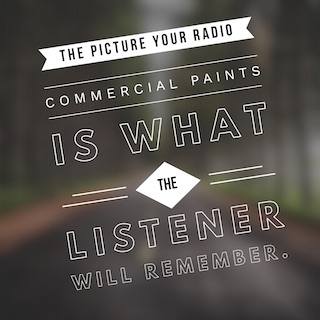“I’ve got a client who is talking about wanting a jingle. I’m curious what your thoughts are on jingles in commercials.”
Dan Replies:
For a local advertiser, a jingle should be used only if it helps drive home the sales message; if you were to hear only the jingle, you’d know who the advertiser is and what problem he solves for the consumer.
The first thing I’d do is ask the client, “Why do you want a jingle?”
He’ll probably respond, “Because I still sing the jingle of XYZ Plumbers from 30 years ago” or “To stand out from the other commercials” or “I dunno. Just seems like a good idea.”
If he gives you the first answer, ask: “Have you ever used XYZ Plumbers?”
Mostly likely the answer will be no.
“So although you remember the jingle, it never caused you to become one of their customers. Sure, we can produce a catchy jingle for you, but getting people to remember you name isn’t enough to make your cash register ring.
“Before we decide whether to go with a jingle, we need to delve deeper into exactly what you want your ad campaign to accomplish. How will you measure its success? What actions do your prospects need to take to become your customers….?”
The Easiest Way to Sell a Radio Commercial Campaign to a Local Business Owner
Radio veterans know that the easiest way to sell a commercial schedule is to have the business owner voice the spot.
The second easiest way to sell a commercial schedule is to sing the advertiser’s name.
This Los Angeles area automobile dealership loves its jingle.
That advertiser has been using that jingle for a couple of decades.
I heard their radio commercials for many years before I even realized they’re a car dealership.
Honestly, I assumed they’re a place that makes keys, and they’re on Van Nuys Boulevard.
Is that because I’m incredibly dense?
Undoubtedly that’s the explanation you’d get from the agency and the advertiser: “He just doesn’t get it.”
But I’m no dumber than the average radio listener, and the reason it took me so long to realize what the heck that advertiser sells is that their commercials sells…their jingle.
The jingle isn’t even very good.
The production is mediocre.
The weak falsetto lead makes it difficult to understand the lyrics without effort — and what radio listener wants to work to understand the words of a commercial jingle?
This Jingle Reaches Two Types of Listeners.
The two types of listener who hear this jingle are:
1. People who aren’t familiar with “Barbara Ann,” the Beach Boys’ hit from the ’60s.
(Yeah, I know the Regents had the original hit. And yeah, I know the lead singer is Dean Torrence, of Jan & Dean.)
2. People who are familiar with “Barbara Ann.”
For listeners who don’t know the original song, all they hear is a lame jingle.
They don’t react with delighted recognition upon hearing a fun song from their past. To them, it’s just some dumb jingle.
Here’s Something The People Behind This Campaign Apparently Don’t Realize.
The listeners who remember the hit song compare this jingle to…the Beach Boys’ version:
It’s like comparing someone who failed the open auditions for AMERICAN IDOL to Kelly Clarkson.
It’s downright embarrassing.
There’s no way that advertiser will dump the jingle.
But at least they could feature their product/service in the song’s hook. You know, the part that “gets stuck” in people’s heads?
What’s The Story?
A good commercial sells the results of the product or service being offered.
It does so by painting a picture of someone enjoying those results.
If you force yourself to listen to this commercial, what do you picture?
The woman answering the phone, probably seated at some sort of desk. Although it’s supposed to be “the emergency room,” the phone sfx and her voice tone are more likely to generate the image of an office.
The guy on the phone has “a song stuck in my head.”
So he does what most people do when they have songs stuck in their heads: He calls the emergency room.
That is so relatable to our everyday experience.
Buy From Us; We Lie To You.
“Everyone’s singing, ’cause everyone’s saving.”
• No one is singing.
• Where does the “everyone’s saving” claim come from? How is it demonstrated or proven in the commercial?
• “You and the rest of L.A.” got that jingle stuck in their heads.
No, they don’t.
For every listener who hears this spot and doesn’t have that jingle stuck in their heads, the advertiser is a liar.
I Got Your Unique Selling Proposition Right Here. Two of Them.
“Come in now and get a free appraisal!”
Holy cow! A car dealer that offers a FREE APPRAISAL??
Talk about an irresistible offer…
“Plus, we’ll buy your car whether you buy ours or not.”
Another Stop The Presses moment: They buy used cars. And they’ll buy yours even if you don’t buy a vehicle from them.
That’s the best they can do with 60 seconds of air time? Brag about their jingle, offer a free appraisal, and mention that they buy used cars?
Ah, But The Advertiser Will Say….
“Oh, yeah? How come whenever someone learns I’m with Keyes on Van Nuys, they immediately sing the jingle to me??”
Well, think back to when you first began to advertise.
What was your goal?
Was it to get people to sing your jingle when they meet you?
Or was it to motivate people to buy cars from your dealership?
I guarantee the advertiser does not hear this very often: “What a great jingle! After hearing it again and again, I decided to buy a car from you.”
The jingle reinforces the client’s name.
But getting people to remember your name without associating it with what you sell isn’t a particularly smart strategy.


